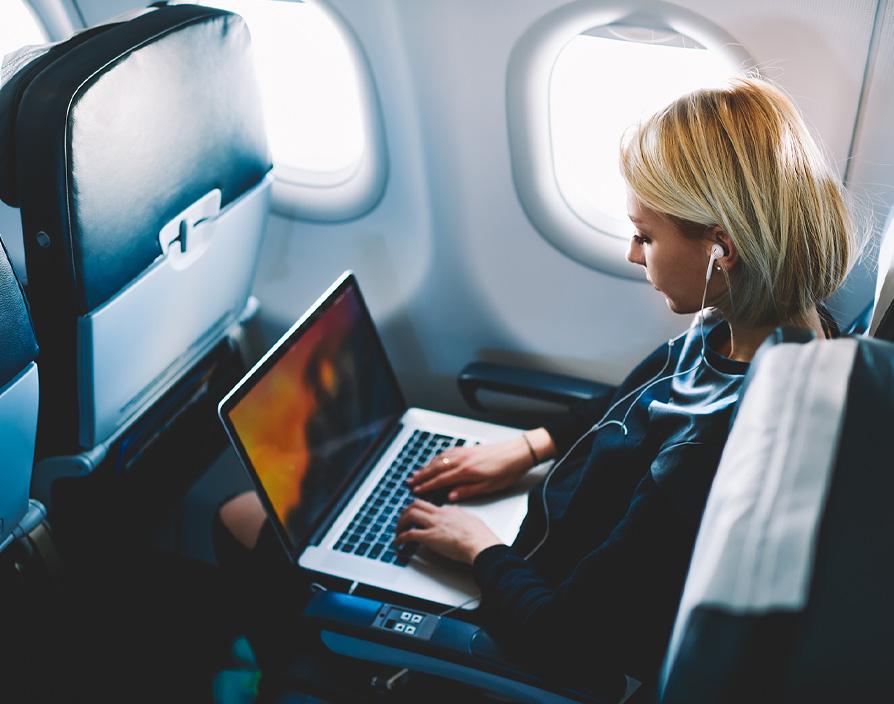The ‘jump on a plane’ mindset is now a thing of the past for many SMEs.
During 2021, US managed corporate travel spend plummeted by 71% according to McKinsey. The pandemic as good as shut down the travel industry and millions were forced to work from home. As we emerged from Lockdown 3.0 – or was it 4.0? – report after report showed that business travellers were keen to get back on the road, but travel managers, HR and procurement had different ideas.
The term ’purposeful travel’ has been gaining traction among leisure travellers for some time. It’s about travelling with a goal in mind – often for self-improvement (think yoga retreat), but increasingly to do good for the planet (helping to build a school, perhaps). More recently, we’ve seen business travel entering its own era of purposeful travel and industry experts are putting this down to just one of many consequences of Covid’s impact on the sector.
Consultants Festive Road claim it’s come hot on the tails of a long period of business travel growth ‘brought to a shuddering halt by the chaos created by the virus and associated travel restrictions.’
This pause in travel – plus changes to the way organisations operate and employees work, and an increasing focus on sustainability, climate change and employee wellbeing – has given business a unique opportunity to rethink how, when, why and if they travel with many conversations starting with the question, “Will being there in-person expedite or improve the outcome of the meeting?”
I manage travel for AMS, and before Covid our team and leaders would come together on a regular basis to build all-important relationships, host strategy sessions and set the future direction of the organisation among other reasons. If there was an issue with a client, we had a real ‘jump on a plane’ mindset.
During Covid, though, we noticed the lack of travel wasn’t stopping us from doing – or achieving – any of that. Instead, we focused on the job in hand (to continue to grow the business), and even though we were forced to adopt alternative ways to bring people together and connect, we’ve still grown significantly over the last 16 months.
Over the last two years, so much has changed, and this has influenced how we – I – manage travel for the business. While there will always be times when the decision to travel is 100 per cent the right one; when it’s critical for people to meet face to face and Teams or Zoom simply can’t compete or replicate that level of engagement. But, generally, we have ditched the ‘jump on a plane’ mindset in favour of taking a more considered and thoughtful approach and there are three main reasons why:
- Sustainability – cutting carbon emissions and operating more sustainably shot up the agenda for many businesses through Covid, but none more so than travel. Sustainability is now core to our business and one part of a robust ESG roadmap, so it’s imperative to consider before approving any business travel. This can mean opting for rail over air, direct over non-direct flights, looking for flights that use SAF (sustainable aviation fuel), introducing carbon budgets (by individual, department or territory) and offsetting carbon emissions.
- Employee wellbeing – this has also risen steadily up the agenda. Many people relished the change in work-life balance enforced by Covid and are keen to continue prioritising family time now that we are back in the office and travelling again. It’s made us rethink travel from a duty of care and health and wellbeing viewpoint and we’re hyper aware of the impact it can have on our employees’ mental and physical wellbeing. For this reason, employees only travel for meetings if a virtual alternative cannot achieve the right outcome, we group meetings into one trip in favour of multiple trips (this also has environmental benefits), we encourage employees to consider an overnight stay if they are travelling for more than half the day, and so on.
- Talent retention – talent attraction and retention is proving tricky in many sectors including ours. We are continuing to hire people remotely and they are dispersed in teams across the globe so travel can be an important tool to connect those people and encourage collaboration, but only if absolutely necessary. An alternative – and one we have introduced – is to offer employees the option of working in on demand flexible work across different regions, giving them valuable face time with colleagues, allowing us to onboard in person and adding to our EVP in the market.
So, with this in mind, and as we glide through the era of purposeful travel, the big challenges remaining for travel managers are:
- How do we reframe our policy and our standards in line with being more purposeful about how we travel?
- How do we educate and engage our employees about being more purposeful about how, when – and if – they travel?
- How do we give travellers access to the right technology that will help them make purposeful decisions when booking travel, and allows us to implement ample pre-trip approval processes?
But, if we tackle these challenges head on and embrace the opportunity the pause in travel has gifted us and we stop, think and revisit our travel programmes, we can save money, improve employee wellbeing and create communities who actively want to be more sustainable.
Share via:


















































